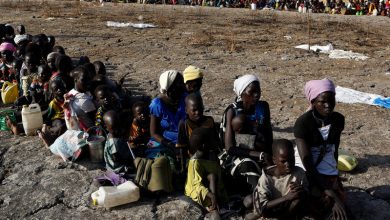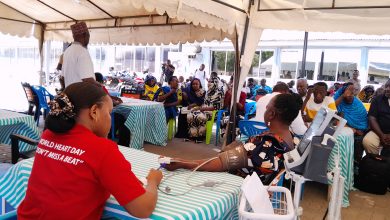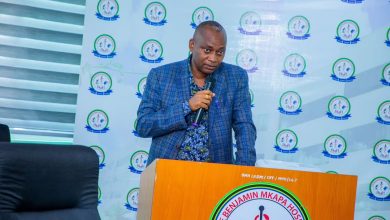Scholastica: champion of community health through the power of voice

MTWARA: DEEP in the heart of Masasi District Council in Mtwara Region, a quiet revolution is unfolding—led by a young woman whose voice has become a tool of transformation.
Her name is Scholastica Stambuli, a vibrant youth advocate whose journey from a concerned citizen to a community health leader is inspiring hope and action across rural Tanzania.
For Scholastica, it all began with a desire to uplift the lives of girls in her neighbourhood. But what started as a personal mission soon turned into a far-reaching initiative, as she joined the Youth Advisory Panel (YAP) under the Mwanzo Mwema programme by Girl Effect Tanzania.
The Mwanzo Mwema programme—supported by Gavi, the Vaccine Alliance—is a four-year project designed to improve child health outcomes through increased immunisation coverage. It specifically targets underserved and hard-to-reach communities, aiming to boost uptake of Routine Immunisation (RI) and the Human Papillomavirus (HPV) vaccine, which plays a critical role in preventing cervical cancer among girls and young women.
Scholastica, armed with training and an unshakable commitment to public service, quickly distinguished herself as more than a volunteer. She became a trusted voice—literally and figuratively—in her community. While participating in targeted health outreaches, she noticed a barrier that threatened the project’s success: many of the parents, especially mothers, could not read the information materials she was distributing.
“I realised that simply handing over brochures or posters was not enough,” she recalls. “If people can’t read them, the message is lost.”
So, she did something simple yet profound—she read the materials out loud.
Her calm, reassuring voice became a lifeline for caregivers desperate to understand how to protect their children. Standing beneath mango trees or on the porches of rural homes, Scholastica would read the immunisation schedules, explain the benefits of timely vaccinations, and answer questions in a language that resonated with her audience.
This approach had a transformative impact. “Once people understood the purpose and timing of vaccines, they started showing up at clinics. They no longer feared the unknown,” Scholastica says.
As a result, community engagement around immunisation surged. More parents brought their children for vaccines. Misconceptions were cleared. Confidence in the healthcare system improved. Scholastica had done more than share information—she had built trust.
Health workers in Masasi took notice. “She helped us reach mothers who were previously unreachable,” one clinic nurse commented. “Sometimes, it’s not about medical equipment. It’s about communication—and Scholastica understands that.”
ALSO READ: Residents urged to register with community health insurance
But her story doesn’t end there. The Mwanzo Mwema programme also offers entrepreneurship and life skills training to its youth participants, recognising that empowered young people can drive change far beyond the health sector.
For Scholastica, the training opened new doors. She began exploring ways to combine her passion for public service with sustainable income generation. “The entrepreneurship training changed my life,” she says. “It gave me the tools to turn my ideas into action—and the confidence to dream bigger.”
Today, Scholastica is not just a health advocate—she is also a budding entrepreneur, running a small but growing business that provides household goods to her community. With the income she earns, she supports her family and continues to fund her outreach work, often travelling long distances to ensure no village is left behind.
Her dual role as a mentor and entrepreneur has made her a beacon of hope for young women in Masasi. Girls see in her a role model—someone who rose from their midst and chose to lead with compassion, commitment, and courage.
Her efforts have also challenged deep-rooted social norms. In many rural areas, young women’s voices are often silenced or sidelined in public matters. But Scholastica is changing that narrative.
“I want young girls to know that their ideas matter—that they can be the ones bringing change,” she says. “All they need is a chance, and someone who believes in them.”
Her leadership underscores a critical truth: when young people are empowered, they don’t just participate—they innovate, inspire, and lead from the frontlines. Her work reflects the untapped potential that exists in many Tanzanian communities, waiting only for opportunity and investment to flourish.
Despite the success, Scholastica remains humble, always turning the spotlight back on the people she serves. “The real heroes are the mothers who walk for hours just to get their children vaccinated, and the youth who volunteer without asking for anything in return. I’m just one of many.”
Still, her impact is unmistakable. Thanks to her efforts, the Mwanzo Mwema programme has seen marked improvements in immunisation uptake across several wards in Masasi. More importantly, community members now feel more informed and included in matters affecting their health.
As Tanzania continues to grapple with gaps in healthcare access and youth unemployment, Scholastica’s story offers a compelling case for investing in community-led solutions. Programmes like Mwanzo Mwema do more than address health indicators—they foster leadership, self-reliance, and local ownership of development outcomes.
Yet, challenges remain. Many rural communities still lack access to accurate health information. Cultural myths and misinformation persist. And far too many young people—especially girls—continue to be excluded from decision-making spaces.
But if Scholastica’s journey proves anything, it’s that change is possible when young people are equipped with the right tools, training, and trust.
Her final message is clear and hopeful: “There are so many young people like me, ready to help, ready to lead. All we need is support. When you invest in us, you invest in the future of our communities.”





